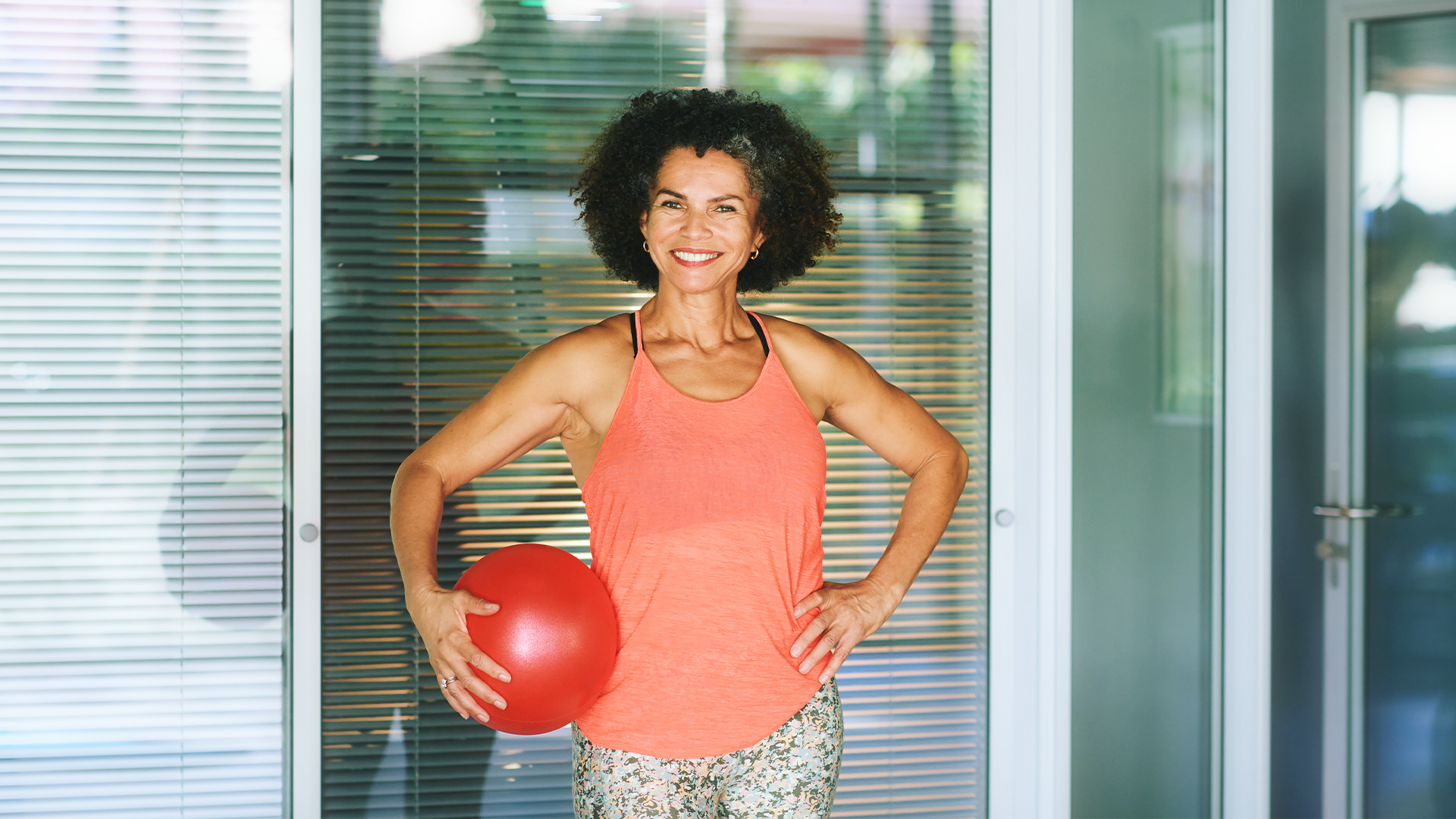How to reduce belly fat during menopause

*This article includes data based on a UK survey conducted by DR.VEGAN® of 996 customers of MenoFriend®, nationally representative, during January & February 2024. All customer survey findings reflect our own efforts and have not been independently verified or influenced by any external organisations or third-party entities.
The latest menopause and gut health survey of 1,526 women by DR.VEGAN® revealed that 86% of women experienced worsening gut health signs as a result of the menopause and weight gain is the most common change that women experience.
With so much confusing information regarding the best ways to support your body through the menopause, it can feel overwhelming. Emma Watts, a multi award-winning personal trainer, clinical nutritionist and menopause practitioner, shares her simple and effective top tips to make it easier to stay healthy and fit through the menopause.
Exercise
This really doesn’t have to be complicated and there really is no need to spend hours in the gym performing long cardio workouts. Scientific studies show that intensive cardio workouts cause the brain to release high levels of cortisol (the body’s stress hormone). Heightened cortisol levels combined with reducing oestrogen can contribute to the dreaded Meno-Belly, and these workouts simply won’t have the same fat-burning results they used to when you were younger. But there are a range of amazing workouts that can actually reduce cortisol, improve menopause symptoms and tackle that stubborn midsection.
Walking
Walking is a brilliant low-impact, fat-burning activity that doesn't place joints under strain or pressure; it improves mental wellbeing, strengthens the skeletal system and supoorts immunity too.
Simple tip: If you’re currently achieving 5000 steps a day, increase this to 5500 per day over the next week, then increase gradually. Before you know it, you’ll be racking up 10,000 steps a day!
Resistance and strength training
This is when you place your muscles under force, lifting weights or your own body weight. Many women are concerned that lifting weights will make them muscular and bulky. This simply won’t happen; women don’t have the level of testosterone to build a muscular physique like men do.
But the benefits of resistance training, especially for menopausal women, include increased bone density, reduced risk of serious illness, lower body fat, improved heart health, increased core strength, improves metabolism, plus a toned, sexy body, and so much more.
Simple tip: Move more; it may sound basic, but move just a little more throughout the day. Eg. every time you receive a text, stand up and march on the spot or squat gently while you reply.
I recommend trying swimming, pilates, dancing, and yoga, but all activity is good activity as long as performed safely and you stay within your range of capabilities and enjoy yourself.
Nutrition
Of the 1,526 women DR.VEGAN® researched, 82% had made changes to their diet to help support them through their menopause journey. The most effective changes in diet included increasing plants and vegetables, reducing or avoiding alcohol, reducing or avoiding dairy or gluten and increasing fibre intake.
By following these simple tips below, you will provide your body with all it needs to support your transitioning body and reduce stubborn body fat.
- Water is key; your body is made up of 60% water, and it doesn’t function at its optimum when it’s dehydrated. Aim for 2-3 litres every day, but break this down into small amounts over the day (125 ml glass every hour over 12 hours).
- Eat all food groups and include whole grains, protein and good fats.
- Fibre, calcium, and iron-rich foods are a must. These support your body, help you stay fuller for longer, and support your bone strength.
- Load up on low-calorie, nutrient-rich foods such as fruit and vegetables, which provide you with a wealth of vitamins and nutrients without loading you with calories.
- Avoid high-fat / sugar / processed foods; cook from fresh; eat as naturally as possible. Avoid any foods that have ingredients you can’t pronounce. You may be interested in reading about the dangers of ultra-processed foods and how to avoid them.
- Increase your protein intake; most women don’t consume enough protein, which provides the building blocks to repairing your body. To work out how much you need, multiply your weight in pounds by 0.40.
- Reduce liquid calories, such as shop-bought coffees and fizzy drinks.
Simple tip: Eat a balance of fruits, vegetables, high-fibre, wholegrain foods, dairy (or dairy alternatives), protein, beans, peas, lentils, unsaturated fats, including Extra Virgin olives, oily fish, avocados and nuts.
Not sure what your diet is missing? Create your Diet Profile for free nutritionist advice.
The best advice I can give you is to keep it simple and don’t overcomplicate things. Eat fresh and natural, stay as active as possible and support your changing body with the right supplements.

Emma Watts; The Menopause Mentor, has over 23 years experience in the health and fitness industry. Emma has worked with a range of companies from the BBC, Bear Grylls, Sky Sports, to the NHS and East England Ambulance service and opened the first non military outdoor training centre in the UK; Bootcamp Revolution in 2010.
Follow Emma on Instagram: @the.menopause.mentor.
To book a consultation, visit The Menopause Mentor website.
*This article includes data based on a UK survey conducted by DR.VEGAN® of 996 customers of MenoFriend®, nationally representative, during January & February 2024. All research findings reflect our own research efforts and have not been independently verified or influenced by any external organisations or third-party entities.
You may also enjoy reading:
- Nutrition for the menopause
- How menopause affects your skin and hair
- Caring for your skin during menopause
- Vaginal dryness: causes, symptoms & remedies
Want to hear more from our nutritionists? Sign up to our email newsletter for insights and exclusive offers:
















